Foreign investors snap up African farmland
- Der Spiegel
- 30 July 2009
Because of the political sensitivity of the modern-day land grab, it is often only the country's head of state who knows the details. Der Spiegel investigates.
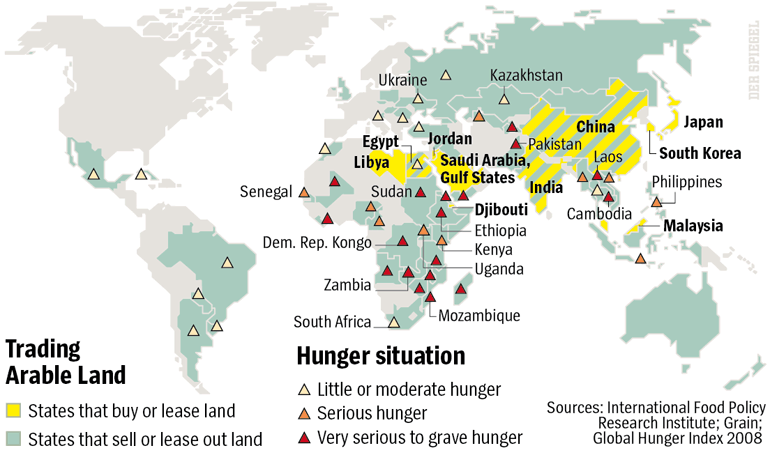
Because of the political sensitivity of the modern-day land grab, it is often only the country's head of state who knows the details. Der Spiegel investigates.

India, once the colonial jewel of Britain's empire, has been accused of 'neo-colonialism' in Africa where its business people have joined a race with China, Saudi Arabia and elsewhere to buy up agricultural estates and take advantage of cheap labour.

Many land transactions occur without a paper trail, therefore making regulation even more challenging.

It's a tsunami of land deals and, as all of the experts who have studied the phenomenon have agreed, no nation is truly prepared for its implications.
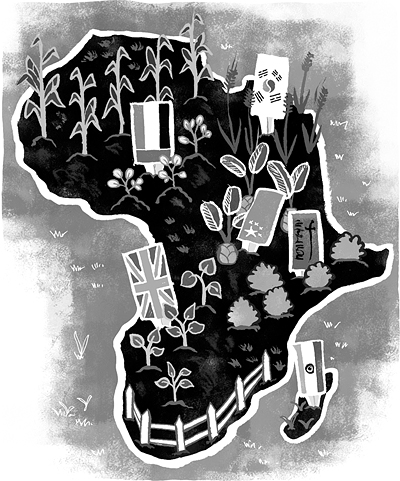
Yes Bank expects a $150 million Tanzanian rice and wheat project to reach full production by 2011, the first of several large African farms it is funding. "We are looking at a more inclusive model wherein the local farmers can be organised into a producers company, and they would be the suppliers to the processing facility. It's predominantly not to acquire huge tracts of land."
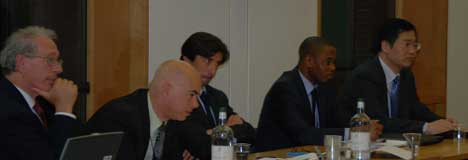
Au delà de sa boulimie pour les matières premières du sous-sol africain, la Chine a aussi commencé à s’intéresser à l’agriculture africaine.

M. Ndiogou Fall a exprimé lundi l'opposition "totale" du ROPPA à la vente massive des terres cultivables en Afrique
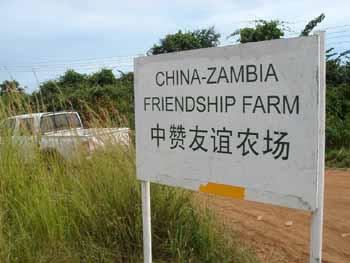
Most Chinese investment in African agriculture is concentrated in southern Africa: Mozambique, Tanzania, Malawi and, increasingly, Angola.

Las adquisiciones de tierra en África, Asia y Latinoamérica, tal y como se hacen en la actualidad, suponen condenar a los más pobres a ser desalojados de sus fincas o a perder acceso a la tierra, al agua y a otros recursos, según el primer estudio sobre la nueva tendencia de grandes corporaciones y gobiernos de invertir en tierras en países pobres, encargado por las agencias de las Naciones Unidas de la Agricultura y Alimentación y del Desarrollo (FAO y UNDP).
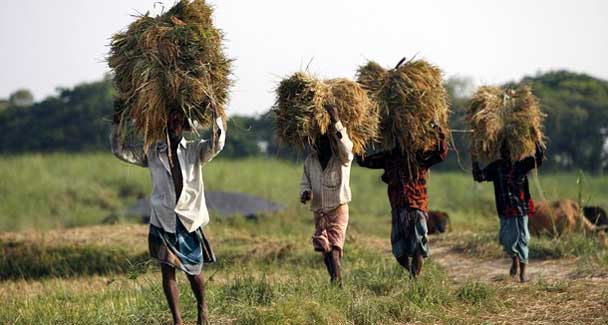
Mohammed Mbwana, who farms in the Tana River delta area and is an official of a local NGO, said the Qatar agreement would displace thousands of locals. At least 150,000 families in farming and pastoralist communities depend on the land in question, said to be part of Kenya’s biggest wetland.

Private equity used to stay away from anything to do with agriculture, put off by the uncontrollable risks of bad climate and natural disasters. And yet in the last three years some big funds have been launched in the agribusiness space, and they are busy trying different ways of mitigating the risks.
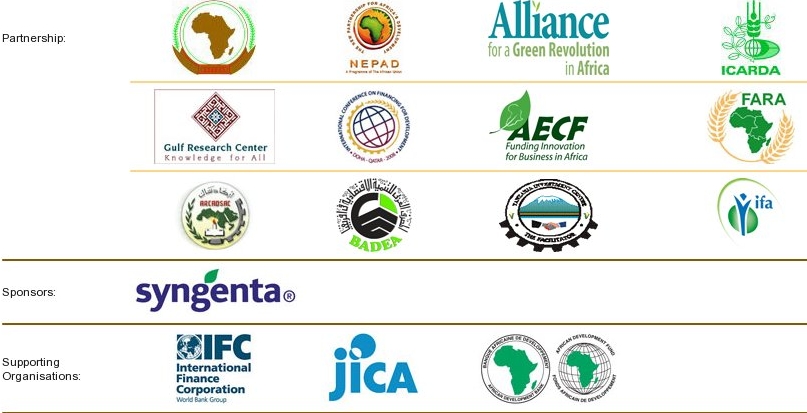
Soaring food prices and lack of land have forced Mauritius, a net food importing country, to launch an ambitious initiative. The island state is starting to grow its food in other African states where land is lying fallow and labour is cheap.

|
KKR acquires ProTen from Aware Super
|

|
CAR offers land ownership using cryptocurrency
|